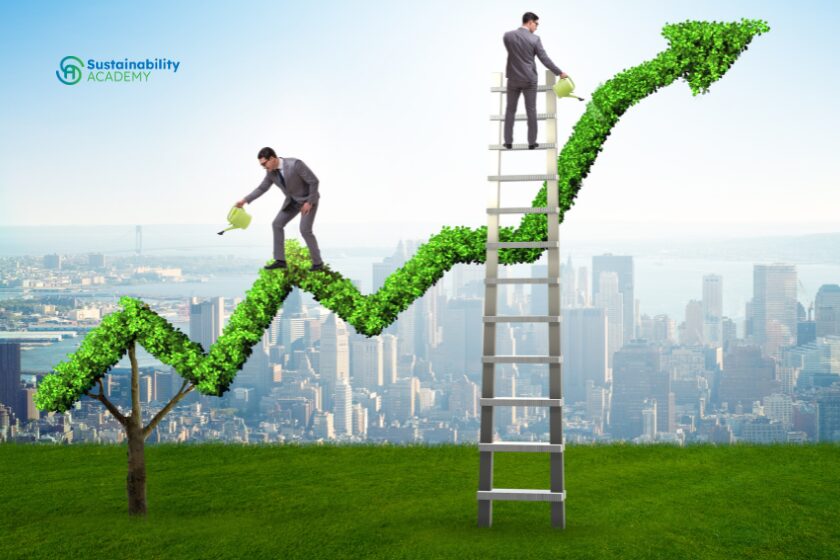A medida que nos acercamos a 2025, el panorama de la inversión sostenible se prepara para una transformación significativa. Los inversores y los profesionales financieros deben mantenerse informados sobre las tendencias emergentes para navegar con eficacia por este terreno en evolución. He aquí cinco temas clave que configurarán la inversión sostenible el próximo año:
-
Normativa ESG reforzada
El marco regulador de las inversiones medioambientales, sociales y de gobernanza (ASG) es cada vez más estricto. En Europa, la Autoridad Europea de Valores y Mercados (AEVM) ha propuesto nuevas normas que exigen Fondos ESG denominados "verdes" o "medioambientales para excluir a los grandes contaminadores, obligando a más de 1.600 fondos a ajustar sus carteras. Esta medida pretende combatir el "lavado verde" y garantizar la transparencia a los inversores.
Del mismo modoLos asesores de la UE recomiendan revisar la gestión sostenible de los recursos hídricos. normas de los fondos de financiación mediante la introducción de nuevas categorías - "Sostenible", "Transición" y "Colección ESG"- para simplificar las clasificaciones y reducir los riesgos de venta indebida.
-
Inversión en transición: De los compromisos a la acción
Los inversores están pasando de limitarse a animar a las empresas a fijar objetivos de sostenibilidad a garantizar acciones tangibles hacia una transición con bajas emisiones de carbono. Este planteamiento proactivo implica colaborar con las empresas para aplicar marcos creíbles de transición climática e invertir en las oportunidades derivadas de la transición energética.
-
Evolución del panorama de los fondos ESG
El mercado de fondos ESG está experimentando cambios significativos. En Estados Unidos, el número de fondos ESG ha disminuido de 647 a principios de 2024 a 595 en septiembre, lo que refleja una tendencia hacia la consolidación y la perfeccionamiento de la oferta ESG. Esta evolución está impulsada por una normativa más estricta y la exigencia de una mayor transparencia, lo que ha provocado el cierre de fondos y el cambio de marca para cumplir las nuevas normas.
-
Financiación de la biodiversidad: Ampliación
La financiación de la biodiversidad está ganando protagonismo a medida que los inversores reconocen la importancia crítica de preservar los ecosistemas naturales. Se están realizando esfuerzos para aumentar las inversiones que apoyan la biodiversidad, y se están desarrollando instrumentos financieros para financiar proyectos destinados a la conservación del medio ambiente.
-
Inteligencia Artificial: Equilibrio entre oportunidades y riesgos
La rápida adopción de la inteligencia artificial (IA) presenta tanto oportunidades como retos en el espacio ESG. Si bien la IA puede mejorar el análisis de datos y la toma de decisiones, también suscita preocupaciones en relación con las violaciones de la privacidad, los sesgos y el impacto medioambiental debido al elevado consumo de energía. Los inversores tienen cada vez más en cuenta estos factores a la hora de evaluar los resultados ASG de las empresas.
Preparar el futuro: Educación y formación
Para participar eficazmente en estas tendencias emergentes, es esencial una formación continua. La Academia de Sostenibilidad ofrece una serie de cursos certificados en línea diseñados para dotar a los profesionales de los conocimientos y habilidades necesarios:
- Certificado en línea sobre calificaciones e inversiones ASG: Este curso ofrece una introducción exhaustiva a las cuestiones, indicadores, normas y calificaciones ASG, junto con conocimientos prácticos sobre inversión y comunicación responsables.
- Certificado en línea sobre las normas CSRD y ESRS: Diseñado para profesionales de la sostenibilidad y ejecutivos de empresas, este curso profundiza en la Directiva sobre Informes de Sostenibilidad Corporativa (CSRD) y las Normas Europeas para la Elaboración de Informes de Sostenibilidad (ESRS), equipando a los participantes para navegar y cumplir con estos marcos.
- ESG para CFOs, IRs y gestores de fondos: Adaptado a los profesionales de las finanzas, este curso abarca los marcos, las calificaciones, las normas y la legislación en materia de ASG, y proporciona información para integrar las consideraciones ASG en la toma de decisiones financieras.
Gracias a estos recursos educativos, los inversores y profesionales pueden mejorar su comprensión de la inversión sostenible y mantenerse a la vanguardia en este dinámico campo.
En conclusión, 2025 será un año crucial para la inversión sostenible, marcado por los avances normativos, la atención a las transiciones prácticas y la integración de las nuevas tecnologías. Mantenerse informado y educado sobre estas tendencias será crucial para aquellos que buscan tomar decisiones de inversión informadas y contribuir a un futuro sostenible.

